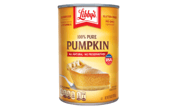Doctors plead: Over 50? This is the must-have vaccine before winter!
By
Aubrey Razon
- Replies 0
Disclaimer: The information provided in this article is for educational purposes only and is not intended as a substitute for professional medical advice, diagnosis, or treatment. Always consult your physician or other qualified healthcare providers with any questions you may have regarding a medical condition or before making any changes to your health regimen.
As winter approaches, there's one crucial task every senior should prioritize: getting vaccinated. This year, the Centers for Disease Control and Prevention (CDC) has updated its vaccine recommendations for respiratory virus season.
Doctors are urging those over 50 to take action and protect themselves now.
The vaccine in the spotlight is the pneumococcal vaccine, which was previously recommended for those aged 65 and older.
However, the new guidelines have lowered the age threshold to 50, reflecting the importance of safeguarding more individuals against the risks of pneumococcal diseases as they age.
CDC director Dr. Mandy Cohen emphasized the timeliness of this vaccination, stating, “Now is a great time to get vaccinated against pneumococcal disease in preparation for the winter respiratory season.”
This advice is not to be taken lightly, as the winter months often see a spike in respiratory illnesses, which can be particularly severe for older adults.
The pneumococcal vaccine is also a critical preventive measure for children under five and for adults and children with pre-existing conditions or who are at high risk for complications.
Dr. George Chaux, MD, a board-certified interventional pulmonologist, stressed the vaccine's importance, especially for those over 50 with chronic health issues such as COPD, other chronic lung diseases, or compromised immune systems.
But what exactly does the pneumococcal vaccine protect against?
The vaccine is designed to combat infections caused by Streptococcus pneumoniae bacteria strains, also known as pneumococcus.
These bacteria can lead to a range of infections, each with varying symptoms, including:
The effectiveness of the pneumococcal vaccine is significant, with the CDC reporting that it protects four out of five healthy children from serious illness and 75% of older adults from invasive pneumococcal disease.
It also offers protection to 45% of adults from pneumococcal pneumonia and between 60% and 70% of healthy adults from invasive pneumococcal diseases.
In terms of safety, the pneumococcal vaccine is generally well-tolerated.
Most patients experience no adverse reactions, and those who do may encounter mild side effects such as fever, muscle aches, soreness or redness at the injection site, and fatigue, which typically subside within a couple of days.
As we prepare for the winter season, it's crucial for our community members over 50 to prioritize their health by getting the pneumococcal vaccine.
It's a simple step that can have a profound impact on your well-being and help you enjoy the colder months with peace of mind.
If you have any concerns or questions about the pneumococcal vaccine, we encourage you to speak with your healthcare provider.
They can provide personalized advice and ensure that you're up to date with this and other important vaccinations.
 Have you received your pneumococcal vaccine yet, or are you planning to? Share your experiences and thoughts with us in the comments below.
Have you received your pneumococcal vaccine yet, or are you planning to? Share your experiences and thoughts with us in the comments below.
As winter approaches, there's one crucial task every senior should prioritize: getting vaccinated. This year, the Centers for Disease Control and Prevention (CDC) has updated its vaccine recommendations for respiratory virus season.
Doctors are urging those over 50 to take action and protect themselves now.
The vaccine in the spotlight is the pneumococcal vaccine, which was previously recommended for those aged 65 and older.
However, the new guidelines have lowered the age threshold to 50, reflecting the importance of safeguarding more individuals against the risks of pneumococcal diseases as they age.
CDC director Dr. Mandy Cohen emphasized the timeliness of this vaccination, stating, “Now is a great time to get vaccinated against pneumococcal disease in preparation for the winter respiratory season.”
This advice is not to be taken lightly, as the winter months often see a spike in respiratory illnesses, which can be particularly severe for older adults.
The pneumococcal vaccine is also a critical preventive measure for children under five and for adults and children with pre-existing conditions or who are at high risk for complications.
Dr. George Chaux, MD, a board-certified interventional pulmonologist, stressed the vaccine's importance, especially for those over 50 with chronic health issues such as COPD, other chronic lung diseases, or compromised immune systems.
But what exactly does the pneumococcal vaccine protect against?
The vaccine is designed to combat infections caused by Streptococcus pneumoniae bacteria strains, also known as pneumococcus.
These bacteria can lead to a range of infections, each with varying symptoms, including:
Bacteremia
A serious bloodstream infection with symptoms like chills, fever, and cognitive difficulty. It can be fatal and may result in limb loss if untreated.Meningitis
An infection of the spinal cord and brain that can cause confusion, light sensitivity, stiff neck, headache, and fever. It can lead to hearing loss or developmental delays in children and can be deadly.Pneumococcal pneumonia
An infection in the lungs that can cause chest pain, difficulty breathing, coughing, fever, chills, and confusion. Untreated, it can lead to severe complications and even death.Otitis media
Commonly known as a middle ear infection, it can cause ear pain, fatigue, fever, and ear drum inflammation.Sinusitis
A sinus infection that can cause bad breath, coughing, sneezing, congestion, runny nose, facial pressure and pain, headache, post-nasal drip, fever, and sore throat.The effectiveness of the pneumococcal vaccine is significant, with the CDC reporting that it protects four out of five healthy children from serious illness and 75% of older adults from invasive pneumococcal disease.
It also offers protection to 45% of adults from pneumococcal pneumonia and between 60% and 70% of healthy adults from invasive pneumococcal diseases.
In terms of safety, the pneumococcal vaccine is generally well-tolerated.
Most patients experience no adverse reactions, and those who do may encounter mild side effects such as fever, muscle aches, soreness or redness at the injection site, and fatigue, which typically subside within a couple of days.
As we prepare for the winter season, it's crucial for our community members over 50 to prioritize their health by getting the pneumococcal vaccine.
It's a simple step that can have a profound impact on your well-being and help you enjoy the colder months with peace of mind.
If you have any concerns or questions about the pneumococcal vaccine, we encourage you to speak with your healthcare provider.
They can provide personalized advice and ensure that you're up to date with this and other important vaccinations.
Key Takeaways
- The pneumococcal vaccine is now recommended for individuals 50 years and older, in addition to those previously recommended for 65 and up, children under five, and high-risk individuals.
- The vaccine protects against serious infections caused by Streptococcus pneumoniae bacteria, including bacteremia, meningitis, pneumococcal pneumonia, otitis media, and sinusitis.
- The vaccine has shown to be 75% effective in preventing invasive pneumococcal disease in older adults and 45% effective against pneumococcal pneumonia, with varying levels of protection for other age groups and conditions.
- It is considered safe with mild side effects reported in some patients, including fever, muscle aches, and soreness or redness at the injection site, which generally subside within two days.







